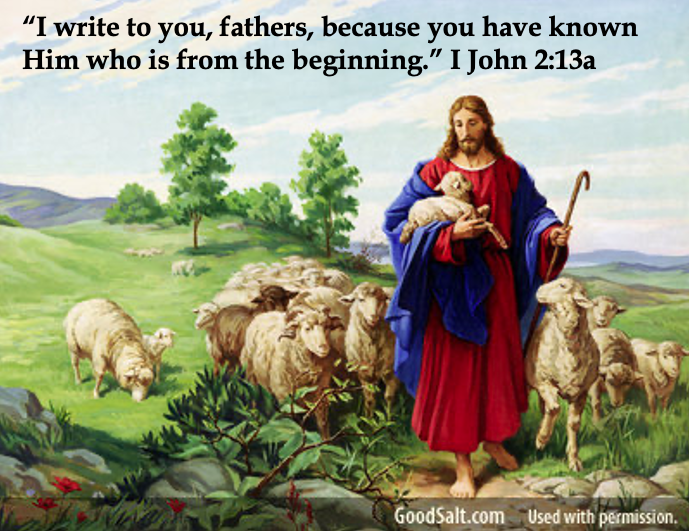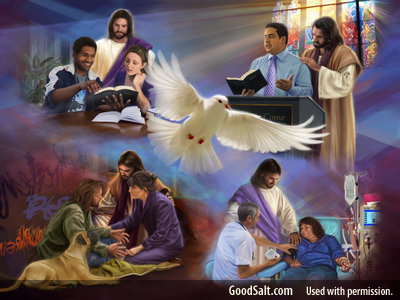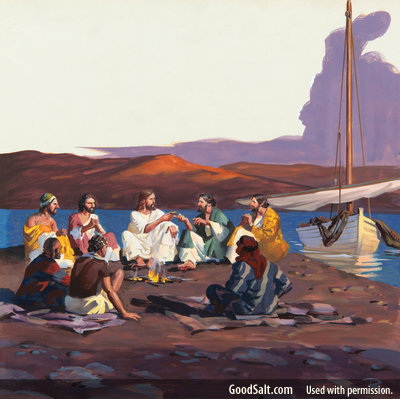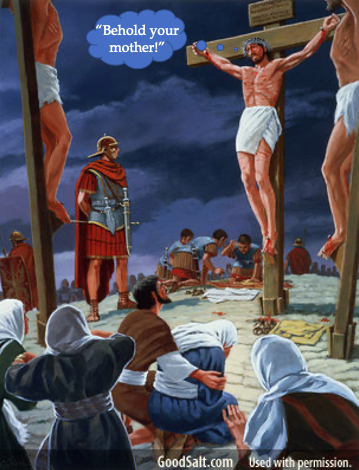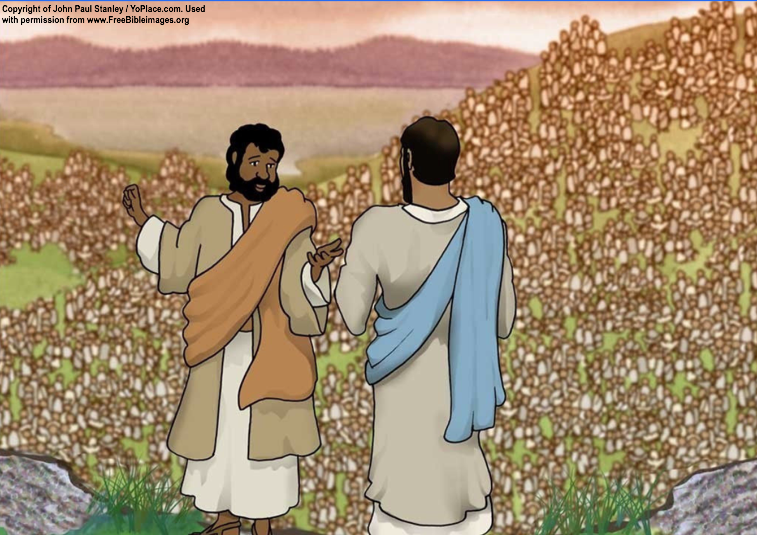“1 Wisdom has built her house, she has hewn out her seven pillars; 2 She has slaughtered her meat, she has mixed her wine, she has also furnished her table… 13 A foolish woman is clamorous; she is simple, and knows nothing… 16 she says, …‘17 Stolen water is sweet, and bread eaten in secret is pleasant.’” Proverbs 9:1-2, 13, 16-17
Proverbs 9 contrasts two feasts and their fates or destinies. The first feast is offered by God’s wisdom which is personified as a dignified and responsible woman of character and wealth who has prepared an incredible banquet in “her house” with “seven pillars” (9:1). The “seven pillars” suggests wisdom’s industriousness and her house’s spaciousness and stability. Some suggest that the “seven pillars” refer to the seven days of creation alluded to in the previous chapter (8:22-31) [1] or to the fullness of the Holy Spirit (Isa. 11:2; Rev. 1:4; 3:1; 4:5; 5:6). [2] The number “seven” indicates perfection and fullness in the Bible, so its use here could indicate wisdom’s sufficiency.
Lady Wisdom has butchered (“slaughtered”) animals and cooked their “meat” and diluted (“mixed”) “her wine,” having “furnished her table” with the finest utensils and decorations (9:2). Lady Wisdom then “sent out her maidens” to invite people to her banquet and she herself “cries out from the highest places of the city” where the invitation could be heard by many (9:3). Anyone (“whoever”) who is naïve or gullible (“simple”) and “lacks understanding” is invited to “turn in” to her house and “eat… and drink” what she has prepared for them (9:4-5). She beckons her listeners to “forsake foolishness and live, and go in the way of understanding” (9:6).
Lady Wisdom’s rival, Folly, is personified as a harlot (prostitute) inviting the naïve or gullible (“simple”) and “him who lacks understanding” to a sensual feast of “stolen water” (illicit sex – cf. 5:15-16) and “bread eaten in secret,” which only offer immediate pleasure (9:13-17) in contrast to wisdom’s long-term satisfaction (9:6-9). Though Folly’s invitation seems appealing and attractive, the end result is death – “hell” (Sheol) refers to the grave (9:18). This suggests that sexual immorality is the height of folly.
All of us desperately need God’s wisdom so we need to RSVP immediately to Lady Wisdom’s invitation and partake of her mind-blowing banquet She has prepared for us. Accepting Lady Wisdom’s invitation will keep us from dying an untimely death that Folly’s invitation would lead to. [3]
Satan has prepared his banquet to distract or draw us away from God’s. Satan’s party is hosted by Folly who is rowdy (“clamorous”), naïve or gullible (“simple”), and “knows nothing” (9:13). She is easily accessible (“she sits at the door of her house, on a seat by the heights of the city”) and heard (“to call to those who pass by”) (9:14-15). Although Folly’s feast appears “sweet” and “pleasant,” it will kill us if we respond positively to its invitation (9:7-18). Her guests are in the grave and will not come home from this party. [4]
In this Proverb, Solomon pictures a young man (“who is simple… and… lacks understanding”) being invited to two different parties. This young man is strutting his stuff down the street with testosterone spewing out both ears. He is an easy sexual target. Lady Folly could represent anything that is sexually enticing such as a porn site, hookup/dating site, strip club, massage parlor or even a neighbor’s wife that is irresistible to him. And Lady Folly knows it. This guy is an easy victim. As Solomon watches he knows what is about to happen. [5]
The young man fails to connect the choice to eat at folly’s appealing banquet table with the deadly consequences (9:17-18). Such is the case with many men today who are addicted to porn and sex. Satan is destroying their lives and relationships with those closest to them. But there is hope.
God has given us this Proverb to alert us to the many life-giving blessings of His wisdom and the death-dealing blight of folly. Accepting Lady Wisdom’s invitation to sit at Her banquet table will overwhelm us with God’s goodness and grace (9:1-11). It is there that we will enjoy “the fruit of the Spirit” which is “love, joy, peace, longsuffering, kindness, goodness, faithfulness, gentleness, self-control” (Gal. 5:22-23) and experience the abundant life the Spirit gives (cf. Rom. 8:5, 6b). Accepting Lady Folly’s invitation instead of Wisdom’s may feel good at first (as porn and illicit sex usually do), but the consequences are deadly (9:13-18).
May each of us guard our hearts from Satan’s deceptions and embrace God’s invitation to sit at His life-giving banquet table where we can enjoy close fellowship with Him and the life and peace He gives. Like a godly woman who has gone to great lengths to provide a delicious meal for those she dearly loves, so God has gone to great lengths to provide a smorgasbord of life-giving blessings for His dearly beloved children (cf. Ephes. 1:3-14).
If you are struggling with shame because of recent failures, please know that to eat at God’s banquet table, you do not have to have a perfect track record. None of us do (Rom. 3:23). That is why God has given His only perfect Son to be our Substitute Who died on a cross in our place for all our sins and rose from the dead so “whoever believes in Him should not perish but have everlasting life” (John 3:16; I Cor. 15:1-6). If you have trusted Christ alone for His gift of everlasting life, your seat at God’s banquet table is ready for you to take your place so you can feast upon the life-giving blessings God has prepared for you.
Bob George shares a great story to illustrate how unnatural it would be to attend Lady Folly’s banquet when we can enjoy a grace-filled banquet with the Lord Jesus Christ. Jesus Christ:
Imagine that you owned a fine cafeteria. One day, you hear this tremendous commotion out in the alley where the garbage dumpsters are. You open the back door to see what’s going on, and you see the most pitiful-looking human being you have ever seen in your life – me – fighting with several stray cats over food scraps in the dumpster. I am a virtual living skeleton. It’s obvious that I am living on the edge of starvation, and probably have been for a long time. There is nothing about me to provoke liking or affection in you, but you are moved to pity.
“Hey, hey!” you yell. “Get out of the garbage. Don’t eat that stuff! Come over here.” I trudge over to you, half-seeing you through hopeless eyes.
“Listen,” you say, “I can’t stand to see you eating garbage like that. Come into my cafeteria and eat.”
“But I don’t have any money,” I reply.
“It doesn’t matter,” you say. “My chain of restaurants has done very well, and I can afford it. I want you to eat here every day from now on, absolutely free of charge!”
You take my arm and lead me inside the restaurant. I cannot believe my eyes. I have never seen a cafeteria line before. With huge, unbelieving eyes I stare at the spread: vegetables… salads… fruits… beef… fish… chicken… cakes… pies…In my wildest dreams, I have never imagined that such things could be.
I look at you intently. “Are you saying I can eat anything I want?”
“Yes, anything.”
“Really, anything I want?” I ask again.
“Yes, I said anything you want,” you answer.
Then slowly, with a gleam in my eye, I ask, “Can I eat some garbage?”
What would you think of me? You would think I was insane, wouldn’t you? In the face of all that delicious food, all I can think of to ask is whether I can eat garbage. But that is exactly how I feel when people ask if they can sin because they are under grace!
…The Christian world is obsessed with sin. It’s all we talk about. Most of our preaching and teaching is directed toward getting people to quit sinning. Are you ready for a really shocking statement? The goal of the Christian life is not to stop sinning! To use the analogy of the starving man, most Christian teaching is like a person following a starving man around saying, “You stay out of the garbage! Do you hear me? Don’t eat the garbage! You stay out of there!”
Look, when you’re truly hungry, you’ll eat anything – even garbage. What should you do? I promise you: If you will get that man into the cafeteria line, and he begins experiencing what real, good food is like, he won’t be nostalgically dreaming about the garbage out back.
…Why should I ever wallow in the garbage when the Lord has laid a banquet table for me? [6]
Lady Folly constantly invites us to feast upon her garbage every day in our sexualized society. Her garbage is disguised to look very appealing and attractive. But in the end, it leads to death. Lady Wisdom’s banquet is filled with life-giving blessings that God has prepared for His children to enjoy daily. Will you join me as I renew my commitment to sit at the Lord’s banquet table daily to feast upon His manifold grace?
The choice seems obvious, doesn’t it? But our enemies – our sinful flesh, Satan, and this fallen world – constantly seek to draw us away from God’s best to a feast that offers temporary pleasure that always leads to miserable consequences. Will we choose garbage or grace? Together, let’s choose God’s grace and sit at Lady Wisdom’s banquet table.
Prayer: All-wise Father in heaven, thank You for preparing a mind-blowing feast for us to enjoy at Your banquet table in contrast to Satan’s counterfeit feast that leads to death. Thank You for making us aware of the life-giving benefits of Your feast and the deadly consequences of Satan’s sensual feast. Unfortunately, we do not always apply Your wisdom to our lives. We have let our hormones influence our decisions instead of You and Your Word. Please forgive us for ignoring Your wisdom and yielding to our fleshly desires. Thank You for Your amazing grace that forgives and cleanses us for our past foolish choices so we may take our place at Your grace-filled banquet table. We need Your grace to enable us to feed our hearts and minds with the Holy Spirit’s teaching from Your Word so we can enjoy the many blessings You have already given to us in Christ. In the matchless name of our Savior and Lord, the Lord Jesus Christ, we pray. Amen.
FOOTNOTES:
[1] Tom Constable, Dr. Constable’s Notes on Proverbs, 2023 Edition, pg. 65.
[2] Ibid., pg. 66 cites Franz Delitzsch, Biblical Commentary on the Proverbs of Solomon Vol. 1 Translated by M. G. Eason. Biblical Commentary on the Old Testament Reprint ed. (Grand Rapids: Wm. B. Eerdmans Publishing Co., n.d.), pp. 197-198.
[3] Tony Evans, CSB Bibles by Holman, The Tony Evans Bible Commentary (B & H Publishing Group, Kindle Edition, 2019), pg. 1295.
[4] Ibid., pg. 1296.
[5] Dr. Ted Roberts, Seven Pillars of Freedom Workbook (Gresham, OR: Pure Desire Ministries International, 2014), pg. 32.
[6] Adapted from Bob George, Classic Christianity (Eugene Oregon: Harvest House Publishers, 1989), pp. 135-138.



